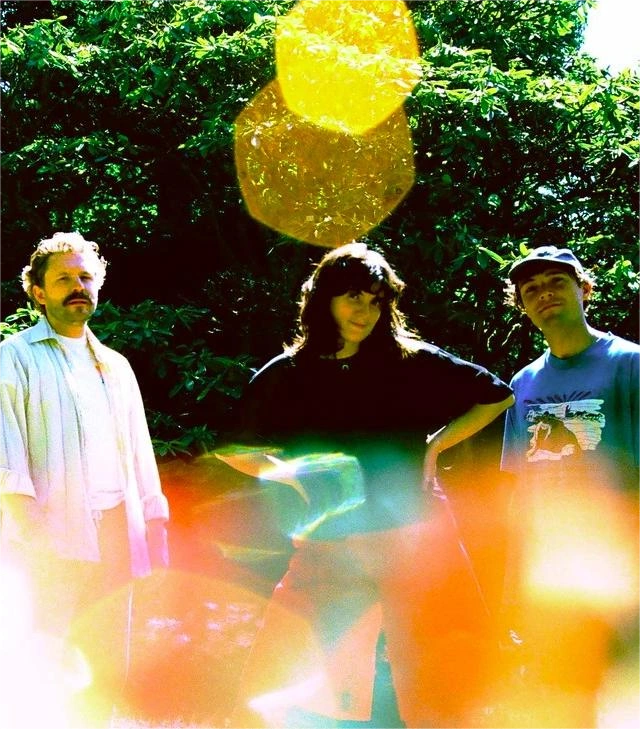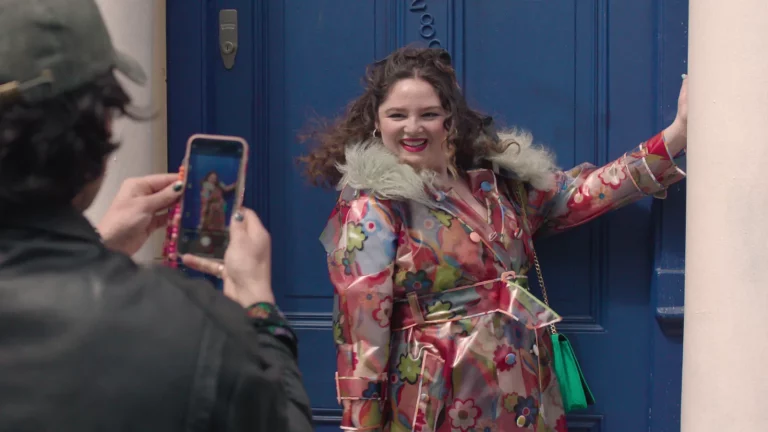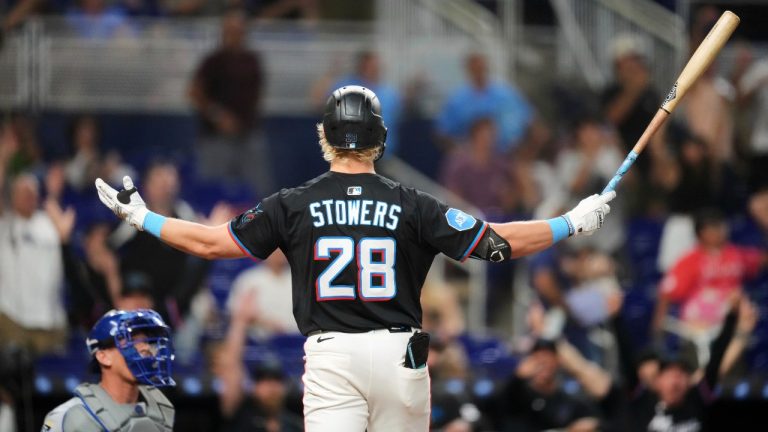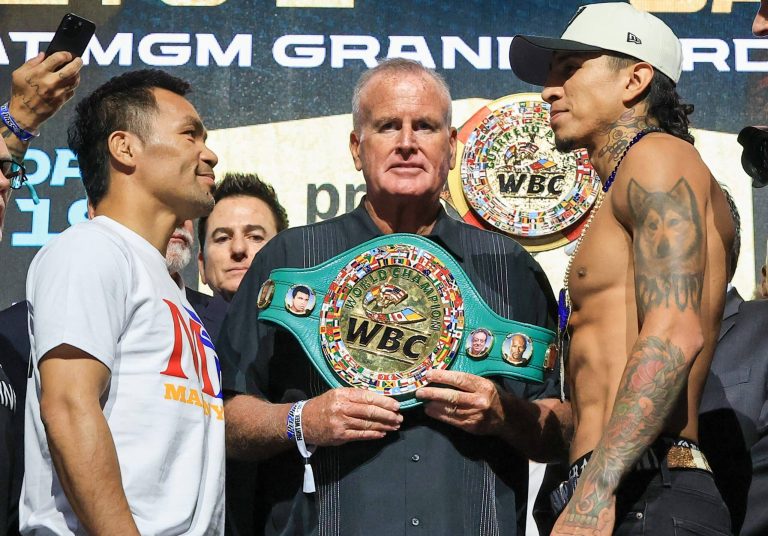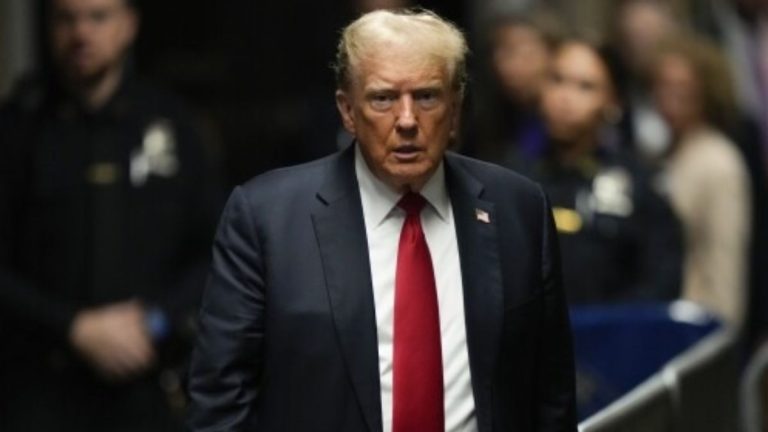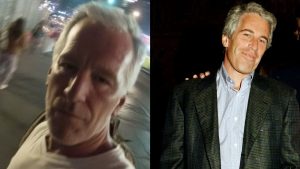Coral Grief is the Seattle indie rock trio of singer and bassist Lena Farr-Morrissey, guitarist Sam Fason, and drummer Cam Hancock. Farr-Morrissey and Fason recorded their 2021 self-titled EP in isolation, pairing propulsive drum machines with lush melodies, before recruiting Cam Hancock on drums for 2023’s Daydrops EP. Their dynamic has fully solidified on Air Between Us, their just-unveiled debut full-length, though they’re not quite settling on a sound; there’s a searching, exploratory quality to their music. Far from coasting on the comforting tropes of dream-pop, the album – recorded with engineer Nich Wilbur at the Unknown, a small church-turned-studio in rural Anacortes – anchors in a sea of noisy, delicate textures, bending them in accordance with the complex emotionality of Farr-Morrissey’s lyrics, a rarity in the genre. “The zeal of my heart, buried in the sand,” she sings. You don’t have to dig too deep to feel it.
We caught up with Coral Grief for the latest edition of our Artist Spotlight series to talk about their earliest musical memories, recording Air Between Us, the flow of the record, and more.
Air Between Us closes with a song in honour of a record store that Lena worked at until it closed in 2021, and it has one of my favorite lines on the album: “Memories from the ear are preserved in royalty.” Do you mind sharing some of your earliest ones?
Lena Farr-Morrissey: Good question. I grew up playing piano and classical piano. This is a bad musical memory, but I went to listen to a pipe organ at the cathedral in Seattle, and it was so loud and intense. It shook me to the core, and I ran out. [laughs] I just couldn’t be in there. But I think there’s something about the way the sound physically shaped me and where it was like, “Wow. Music can be really powerful in a lot of different ways.” That really stuck out as, “How could I wield this instrument into something that shakes me in a good way?” I feel like music is very movement-oriented to me. I grew up dancing and loved listening to ABBA, that kind of thing. I imagine this record being listened to when people are moving somewhere, on a mission, going somewhere.
Cam Hancock: I’ve been playing drums for a while. When I was young, maybe 10 or 11, I went to rock music camp, my first big big music camp. I was a little young for the program, but this guy named Bobby took me under his wing. Everyone would split up into bands, and there’d be instructors for different bands or people just floating around. They put all kinds of young beginner kids in the reggae band – not to say that reggae music is easy, but there’s a groove that’s intuitive. I still think about things that Bobby told me when I was that age – just about listening to other musicians, so many wise words that maybe he didn’t think were gonna get through to a 10-year-old, but totally did. [laughs] His tip to me, because I was obviously very nervous before the performance at the end of the week, was to find someone in the room that’s having a good time. Find someone that’s smiling. And if you ever are feeling nervous or need a moment, latch onto that person – that’s your energy source there. And I still think about that. I don’t like to look at the crowd too much, and that’s kind of the benefit of being the drummer, usually, being back there. But if I can find someone having a good time, it’s cool to be able to provide that for that person. It definitely feels surreal every time.
Sam Fason: A little unlike Lena and Cam, I didn’t start playing music until I was 16 or 17, so I feel like my first music memories are associated with either seeing a band live or finding a song or a record that just really pushed me more from being a casual music fan to actually wanting to play music. I grew up in Austin, Texas, and I remember seeing Deerhunter live at a festival when I was 15 or 16. That was a moment where I was like, “I wanna do that.”
LFM: That’s a cool way to get inspired by music, and then it’s like, how do you pass that on to inspire other people? It’s a cool trajectory of coming to music.
What was that moment for you, Lena, of really letting it be part of your world?
LFM: I also went to a rock camp, and we had this history lesson of all these different cool women bassists and stuff, and they all just looked so cool. Their bass lines were all the coolest ones. I originally wanted to play guitar in the camp, and now I’m like, “Who cares about that?” This is the instrument holding it all down, and there’s an effortlessness about that instrument that I gravitated to. I feel like when you’re missing the bass in a song, it’s like something is deeply wrong, but no one can figure it out. And then when the bass is there, you’re like, “Oh, this is tying it all together.” It’s hard to pinpoint one moment. I feel like music has been finding its way into my world in all corners.
Sam, when did you move to Seattle?
SF: I moved to Seattle in 2019. Lena and I met when we went to school in Colorado. When we were through with that, we played in bands in school and both moved out to back to Seattle. And we’ve been here ever since.
Did you grow up there, Cam?
CH: I grew up in Vermont. I came out this way for college and then moved to Seattle at the end of 2017 for music. I was living in a smaller town working on a farm, just clearing my head after college and doing something different, but was always coming up here to see shows and jam and play with folks. I felt like it was a natural step.
Lena, you’ve talked about how your relationship to home changes even if you’ve lived mostly in the same place that you grew up in. And that last song is also about seeing your home change. What associations come to mind when you think about Seattle that are maybe complicated by the city changing or by growing up, even if there’s still something youthful and pure about it?
LFM: Yeah, I get really defensive of this place when people like to trash it. My friend jokingly calls me the mayor of Seattle, and I’m like, “No, not that.” [laughs] I definitely see its flaws, and I think we should continue to improve it for the better. Or other people are trying to change it, and I want to – well, change, that’s inevitable, but how can we do it in a way that’s better for artists and everyone to live here and not be displacing people? The gentrification process of the city, all of that that’s has been going on over the past few decades – I think it helps me that I have lived here when I was younger because I can look at a time when I wasn’t so concerned with those things and it was just more of a playground of nature and wonder. I went to a ton of DIY shows in high school, and it’s like, how can we bring that energy back into the fold even in a city where most people are struggling to pay rent? It’s a conversation of how we can coexist with everyone as opposed to just accepting that it’s lame and then continuing to live here. I don’t wanna live in a place that I don’t like, and I would imagine most people don’t either. So it’s fun to be a part of something and try to work to change it. This album isn’t necessarily dedicated to it, but it’s a way to try to figure it out for ourselves and contribute something into, like, “Here’s what we’re trying to do here. I hope you join us.”
Everyday Music closed the same month that you released the self-titled Coral Grief EP, is that right?
LFM: It was the same month, yeah. I remember we were testing out the songs on the speakers before the store would open, but we were closing it so no one was coming in. I’m like, “I guess I’ll just play this in here and see what happens.” But yeah, I didn’t realize that.
How do you remember the project developing between that EP and the beginnings of this album?
LFM: There’s been a lot of change. The biggest one is bringing Cam into the fold. We brought him in to play our first live show, and then he became a bigger part of writing the songs. We wrote the first EP in COVID without at all thinking about how to do anything live, so it was like, “How do we make this a vibey little guy that didn’t really need to be out in the world that much?” We were exploring how to bring these songs to life more and complicate them and get our own unique sound – we’re still searching for that, but I think the newer songs try to highlight the more individual parts, but still create a tether of being a more dreamy, lush sound.
SF: Neither of us are drummers, so the first EP is all drum machine, and it was written within that constraint of writing songs that sounded good with that as the rhythmic backbone. As we’ve progressed, it’s been really fun to expand that horizon and open it up more to more diverse and playful rhythmic stuff, because Cam and Lena are both such great players. It’s fun to see them bounce off of each other and get more creative with the rhythmic elements of the songs.
Cam, what attracted you to the dynamic of the band in the first place?
CH: I was working downtown at the time, and I remember listening to the record on the bus as I was going down. I could just tell that there was something there. Honestly, the vocal hooks – that’s what I saw onn first pass. I’ve had the unfortunate luck of turning down projects that ended up maybe going somewhere, and who knows if that would have been a good fit. But after hearing those songs, I was like, “There’s something here.” I also found that with the drum machine in there, it’s not exactly a blank canvas, but there’s a lot of room for me to bring something to it – to take these drum machine parts and make them my own, but also retain some of that rhythmic structure, not just going all jazz on something that doesn’t need that. And now all three of us are having rhythmic ideas and seeing where they fit sort of in real time, as opposed to having to do it after the fact. But both have been a great creative exercise.
Lena, I’m curious to what extent your relationship to songwriting is affected by the climate around you, especially while writing this record. I was thinking of the opening line on ‘The Landfall’: “I can’t recite the anthem, a dream is never sung.”
LFM: Absolutely. I’m not good at being very direct with my songwriting a lot of the time, but I like to put nods in like that because it is unavoidable and affecting everyone’s lives. That line specifically is pretty direct. I don’t wanna just be worshiping nature and in my own head and not tapping into what’s going on in this country and the world in general. I want to work on getting more poignant when talking about that, but it’s definitely always on my mind in trying to write songs. I don’t want to be totally oblivious to the greater surroundings.
It’s interesting because the song bleeds into ‘Paint By Numbers’, which is quite anthemic.
LFM: I didn’t even think about that. I like that a lot. That song was trying to be like, “It’s bad out here. How are we going to find our own voice and create our own landscapes that are full of color and not being depleted?”
What was it like recording the album at the Unknown?
SF: It was really amazing recording there. The space itself is really beautiful and there’s a creative energy in the space that’s really inspiring. We can’t say enough good things about Nich, who helped run the space and was the engineer for the record. The dynamic was perfect because Nich really understood what we were trying to go for and would really steer us in the right direction. He really was good about being like, “I don’t know if that’s gonna work,” but also still really fostering a lot of experimentation and creativity. There’s so many great organs and synths in the space – a lot of songs have that warm, glowing organ underneath everything, which was something that we really wanted. It was an old church, and then it was a sales factory, so there’s a lot of history in the building itself. Being in there at night, it was never spooky, but I feel like Nich jokes about the benevolent ghosts that are in there.
LFM: Staying there made it so all-consuming in a good way.
CH: Having played in a few different rooms and recorded in a few different rooms, it’s really just fun to be in a big space like that. Almost everything you hear that’s recorded there, there’s a little bit of room character. It’s why you go there – not many opportunities to record in an old church like that, at least around here. A lot of that is using the physical space; you don’t have to fake certain aspects of the record. Using the fun vintage tools and instruments and the natural presence of that space is a real benefit of working there.
Going back to hearing that organ in the cathedral…
Yeah, this is my church redemption. [laughs] It was never spooky, but there’s an air about it. It’s not that you’re not alone, but you feel the history of all the different bands that have played there too as well.
I feel the songs on Air Between Us are in conversations with each other, not just variations on a theme: the title track and ‘Mutual Wish’, ‘Rockhounds’ and ‘Outback’. Was that how they flowed out of you?
LFM: The order in which the songs were created was so different. Like you said, they’re more than variations on a theme, but they’re different ways of processing the moment that we were living in. I think a lot of the first songs we wrote were the more upbeat ones, and then we wanted to settle into balance of, what would you like to listen to on a rowboat versus what would you like to listen to on a speedboat?
SF: The original inception of a lot of the songs was in little bursts, so some songs cropped up together, and another group of songs kinda cropped up together, which lends a natural cohesion to them as well.
Do you mind sharing one thing that inspires you about each person in the group?
LFM: I find Cam’s drive and discipline and perseverance and humbleness really inspiring. I think he just combines so many elements of being a drummer that a lot of drummers don’t necessarily possess. He’s such a rare gem in not only his playing, but his presence. He grounds the band in so many different ways; Sam and I can be a little more chaotic. His quote about finding someone smiling in the audience says it all. And then Sam, I am so inspired by his outlook on the world in general and attention to detail, and I think that really shines in all of his textural sonic soundscapes. It’s a world that I know nothing about. It’s not how I write music at all; I’m more about what I am playing, not how I am playing it, and I think Sam can really create a world with his guitar in ways that I can’t even dream of.
SF: I am always really inspired by how almost virtuosic Cam is. We can bring a new song to the table, and within two or three run throughs, Cam has just got it locked down. I might still be struggling mightily to play a part that I wrote and have been working on for a month, but Cam is just locked in. Like Lena was saying, he’s a very grounding force personality-wise, but also musically is really grounding the band, keeping everything super steady and laying the foundation for everything. And Lena is such a creative force, and it’s really inspiring to watch how she works and how she writes. It’s really inspiring to see these little moments of brilliance right as they crop up. I think there’s some perfectionist tendencies with all of us, but Lena really strives to get something as good as it can be.
CH: It’s nice to hear things about yourself. [laughs] I’m inspired by any lyricist in general, but something that stands out about Lena is her ability to take imagery and create something unique from it. Actually witnessing things out in the world and saying, “This is how I can channel this.” I find that a lot of people just pass those things by or maybe take a photo on their phone, or don’t even take it in. But Lena catalogs that stuff and makes something even more special out of it. Being able to do that through lyric writing is always really impressive to me. Something about Sam that I really appreciate is his constant strive to better himself, but also to widen his scope. He’s always thinking about different things that he can get into. I see that searching, adventurous brain working, and part of that is just getting into the shed and practicing and working on his own playing, but there’s also this exploration that’s always happening. It’s always reaching, and it makes it so that this doesn’t ever feel stagnant.
This interview has been edited and condensed for clarity and length.
Coral Grief’s Air Between Us is out now via Suicide Squeeze.
